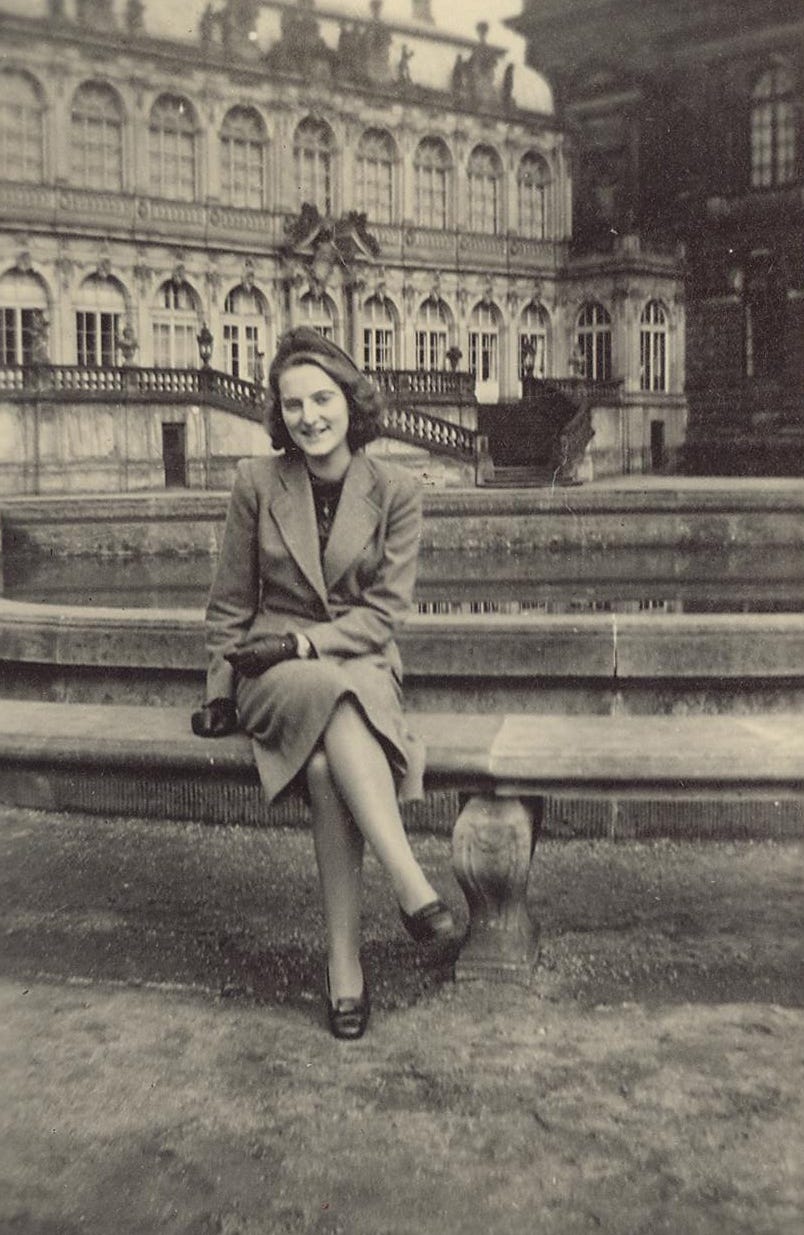Unlike most American families, mine won’t celebrate Mother’s Day this weekend. To my late mother, this holiday always evoked the trauma of her childhood in Nazi Germany, a legacy that her descendants continue to respect and honor today.
Henny Wolf was 9 years old in 1933 when Hitler came to power in Germany and declared Mother’s Day an official holiday, corrupting a centuries-old tradition of honoring mothers into a propaganda exercise about who could be accepted as authentically German and who could not.
Decades later, for her the date still remained deeply connected with the Nazi celebration of the “Aryan” woman and with her own degradation as a Jew who had to wear the yellow star, was exploited as a slave laborer, and lived in fear of deportation to a concentration camp – a fate my mother escaped by only a few terrifying months.
So, there were never flowers, cards or a special dinner for us on Mother’s Day, and there won’t be any this year. As she used to say, “Mother’s Day is every day.”

Ironically, it was the obliteration of her home city of Dresden by Allied bombs that saved my mother from becoming one of Hitler’s six million Jewish victims.
Once celebrated as Germany’s most beautiful city, Dresden was completely reduced to fire and ash in February 1945, when Allied forces dropped more than 3,900 tons of high-explosive bombs, killing an estimated 25,000 people. Yet, as my mother made her way through streets filled with body parts and debris, she felt a taste of freedom.
The day before the bombs hit Dresden, my mother and my grandmother, together with the few dozen Jews in the city, who had remained there out of a Jewish community that once counted 6,000, had received deportation orders.


They were to meet at a collecting point “to be sent to a work assignment outside of Dresden.” They could bring “one suitcase or one backpack (not both)” with clothing, shoes, and a blanket. Henny and her relatives knew exactly what this meant. Most of their family members and friends had gone that way years earlier and were not seen or heard from again.
Opioid addiction: If your teenager was addicted to opioids, would you know? It’s harder than you think.
“I would rather have had a bomb fall on my head than be deported to Auschwitz,” my mother repeatedly said. After a decade of humiliation, discrimination, slavery and fear of death, she now had a chance to survive.
So, even as the bombs fell, my mother knew that she and her mother had just escaped certain death. Auschwitz had been liberated by the Soviet Army and rumors that the Allies were closing in on Dresden were rampant, but trains from other cities still left deporting Jews to the Theresienstadt concentration camp.

The following three months were the longest months of her life. She took shelter and hid in a room of an empty house, which she would never leave. Finally, the Soviet Army marched into Dresden on May 8, 1945. Then, immersed in joy about her mere survival, but mourning the loss of innocent lives and the destruction of her hometown, Henny Wolf was finally free.
It took my mother a half-century to process her life’s experiences in Nazi Germany. She published her memoir, "The Song is Over," in 2001 in Germany and 2010 in the United States, and frequently spoke to young Germans about what happened that night in Dresden. The book gave her a platform and purpose to be a voice of tolerance for younger generations, and reconciliation for her own.
Lessons in hope: My mother never gave up on my brother. Because of her, I never give up on my students.
My mother's last celebration was the 75th anniversary of her liberation in May 2020. That same month, as she did every year, she urged us to ignore Mother’s Day. One week later, Henny Brenner (nee Wolf) died at the age of 95.
This weekend, while millions of other American families celebrate another Mother’s Day, our family will continue to respect her wishes – commemorating the end of the war in Europe in the echo of a mother’s liberation, a mother’s courage, and a mother’s love.
Michael Brenner is director of the Center for Israel Studies at American University in Washington, D.C., and professor of Jewish History and Culture at Ludwig Maximilian University in Munich, Germany. He is also the international president of the Leo Baeck Institute for the Research of German-Jewish History.
Published Updated
"day" - Google News
May 08, 2021 at 04:00PM
https://ift.tt/2Q0HKKV
My mother associated Mother's Day with Hitler. In May we celebrate V-E Day and her survival. - USA TODAY
"day" - Google News
https://ift.tt/3f7h3fo
https://ift.tt/2VYSiKW
Bagikan Berita Ini














0 Response to "My mother associated Mother's Day with Hitler. In May we celebrate V-E Day and her survival. - USA TODAY"
Post a Comment